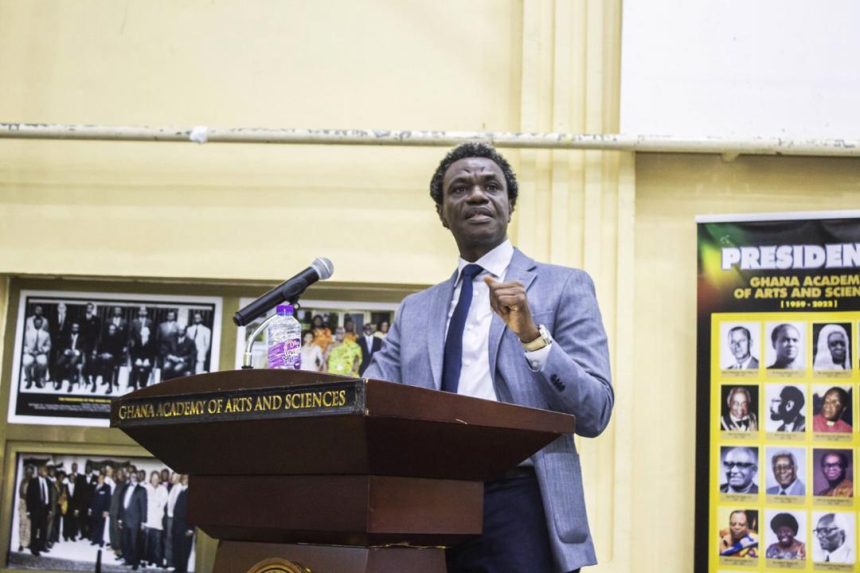Associate Professor at the University of Ghana’s Department of Philosophy and Classics, Prof. Martin Odei Ajei, has opined that the democratic framework of Ghana’s constitution should be realigned to the original proposals of the committee of experts, which sought the adoption of a constitutional pattern of the sharing of executive power amongst all the major parties represented in the legislature.
He made these remarks at the annual Ephraim Amu Memorial Lecture 2023 held by the Ghana Academy of Arts and Sciences on September 21, 2023. This year’s lecture was themed “The Ethics of Nation Building: Perspectives from the Legon Tradition of Philosophy.”
Prof. Odei Ajei also spoke on how the proposals further recommended avoiding the majoritarian system that the constitution currently follows.
“Article 50 [in the constitution] establishes the [majority] takes all principle, and this is entrenched by Article 25. Concerning Article 50, the Committee of Experts that formulated the proposals decisively recommended the adoption of ‘a constitutional pattern of the sharing of executive power amongst all the major parties represented in the legislation on Court. So the proposals recommended avoiding this majoritarian system that has been imposed on us in the Constitution.”
The philosophy expert remarked the contradiction of the constitution with the committee’s recommendations, further proposing amendments on the Constitution to address the matter.
“The committee’s recommendations, I think, are striking endorsements not only in thought but also in terminology of the proposals of the Legon philosophies.
This shows the misalignment between the constitutional order on the one hand, and the prescriptions of philosophers and constitution making experts on the other which I recommend that future amendments of the Constitution should engage this misalignment.”
He further recommended that, during future amendments to Ghana’s constitution, the relational account of personhood and the moral theories of moderate communitarianism must be taken into account to strengthen the foundations of constitutionalism in Ghana.
“Since antiquity from the laws of Plato, the idea that constitutions should encode the customs and the morals of a people has been theorized. Plato explicitly states that custom is the function and the inspiration of constitutions. Aristotle also says that in his politics, moral virtues are the purposes of constitution. So from these, from these theoretical perspectives, we can draw the conclusion that the relational account of
personhood and the moral theories of moderate communitarianism hold the promise as a viable resource for
the foundations of constitutionalism in Ghana.”
“Therefore, I recommend that future amendments of our Constitution should engage this misalignment between the liberal prepositions of the constitutional order on the one hand, and the communitarian, humanistic principles and values that characterize the work of the legon tradition.”
Also present at the lecture was Vice President of the Arts Section of the Ghana Academy of Arts and Sciences GAAS and Chairman of the lecture, Prof. Joseph R. A. Aryee. In his closing remarks, he urged citizens to do what is right rather than what is acceptable, as this would create a just and free society, in turn promoting patriotism and nation-building in Ghana.
“These days, when you talk to people about patriotism, nobody is interested in listening to patriotism. However, I always tell people that…if we do the right thing and not [just] the acceptable thing, we would promote and build a just and a free society.”
The lecture sought to defend the thesis that philosophers who have been affiliated with the University of Ghana have produced a body of thought and a systematic approach to philosophy that merits the status of a traditon of philosophy.
–
Story by: Alexander Kuuku Osei-Baidoo | univers.ug.edu.gh





